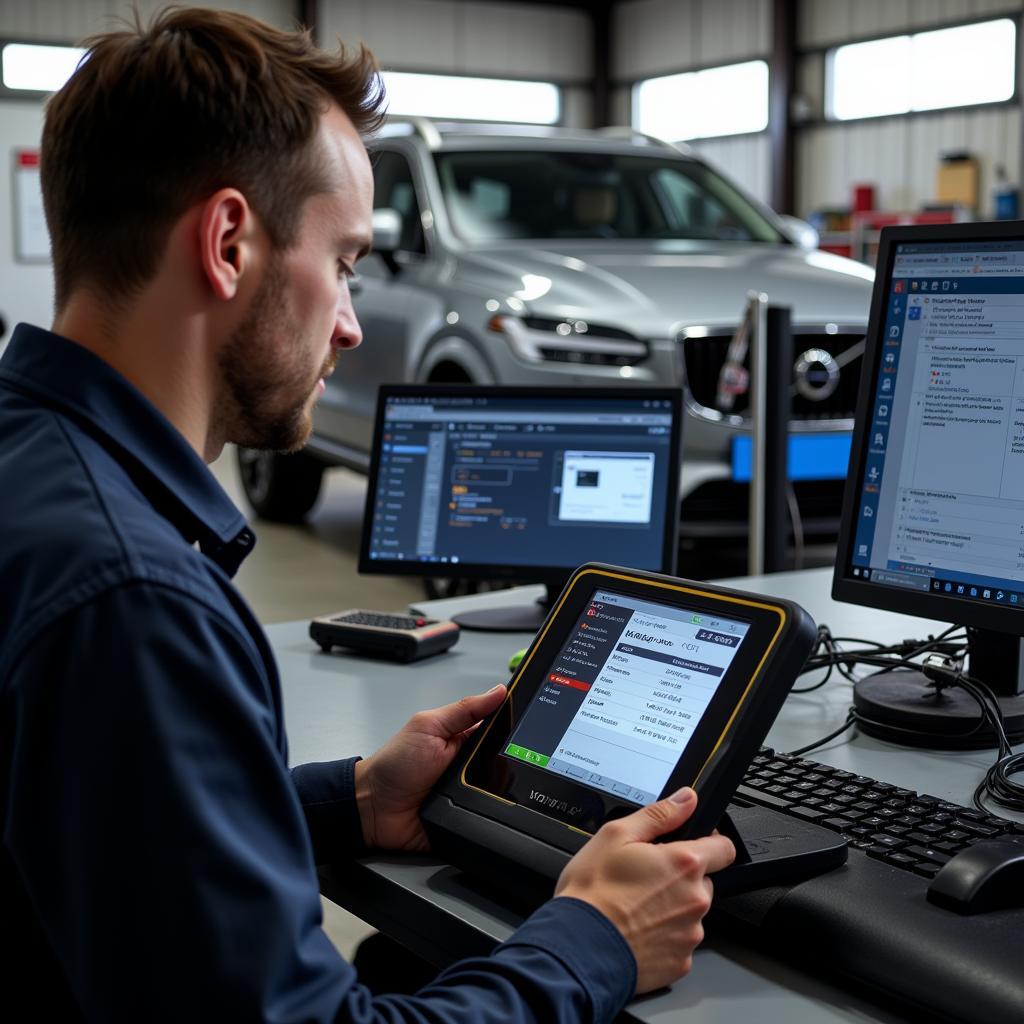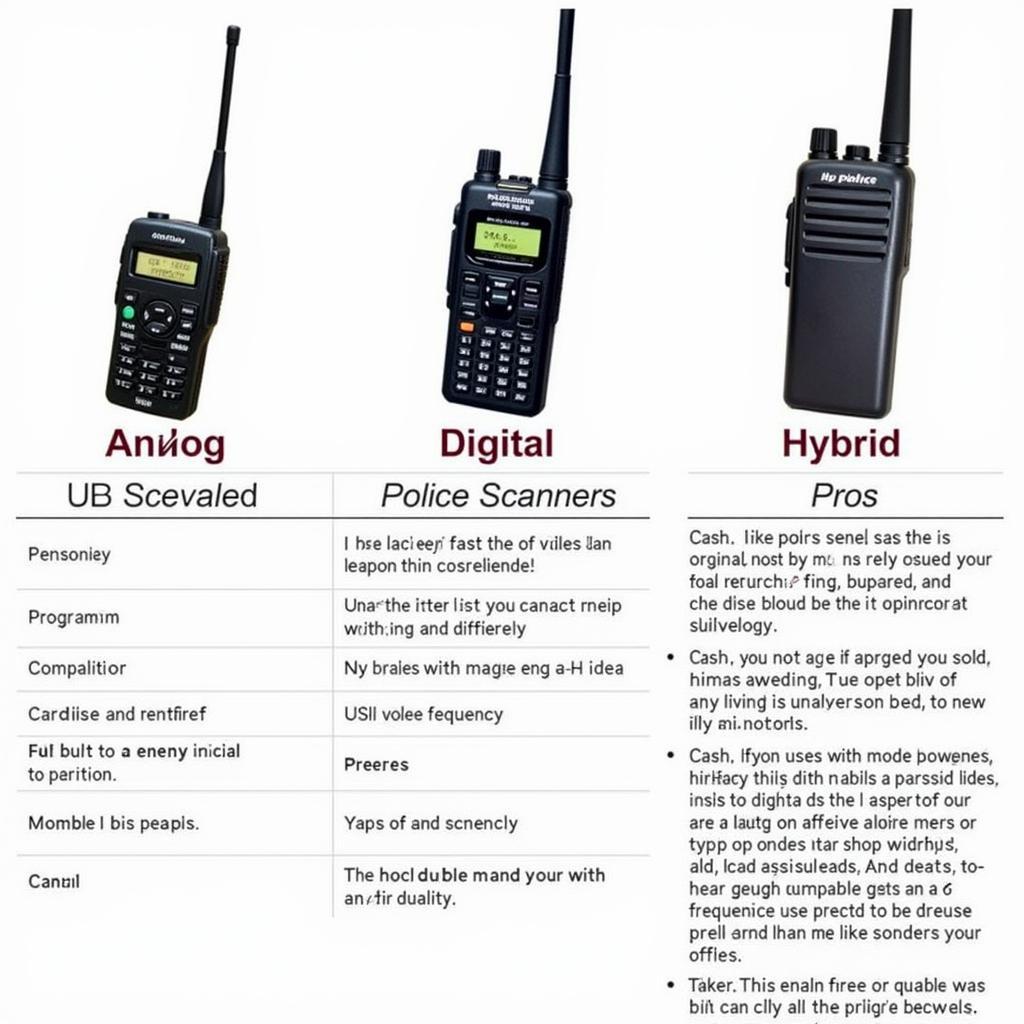A computer scan tool is an essential piece of equipment for any mechanic or car enthusiast. It allows you to communicate with your vehicle’s computer, diagnose problems, and even reset warning lights. But with so many different Computer Scan Tool Software options on the market, it can be tough to know which one is right for you.
This comprehensive guide will walk you through everything you need to know about computer scan tool software, from understanding the basics to choosing the best one for your needs.
What is Computer Scan Tool Software?
Let’s start by answering a common question: What exactly is computer scan tool software, and why is it so important for modern vehicles?
In simple terms, computer scan tool software acts as the bridge between your car’s computer and your understanding. Modern vehicles are equipped with an On-Board Diagnostics (OBD) system, a sophisticated computer that monitors various systems within your car. This system continuously collects data from sensors located throughout the engine, transmission, emissions system, and more.
[image-1|computer-scan-tool-connected-to-car|Car Diagnostic with Computer Scan Tool|A mechanic uses a computer scan tool plugged into a car’s OBD port to diagnose a potential engine issue, with the laptop screen displaying diagnostic codes and live data.]
When an issue arises, the OBD system stores a specific code that corresponds to the problem. This is where computer scan tool software comes into play. By connecting a compatible device (often a handheld scanner or a laptop) to your car’s OBD port (usually located under the dashboard), you gain access to these trouble codes.
But it goes beyond just reading codes. A good computer scan tool software allows you to:
- Read and Clear Diagnostic Trouble Codes (DTCs): Identify the root cause of warning lights or performance issues.
- View Live Data Stream: Monitor real-time sensor readings, like engine RPM, coolant temperature, or oxygen sensor voltage. This is invaluable for diagnosing intermittent problems or understanding how your car is performing.
- Perform Advanced Functions: Depending on the software and vehicle, you might have access to advanced functions like resetting the check engine light, performing component activations (like turning on fuel injectors), or even programming new keys.
Types of Computer Scan Tool Software
[image-2|different-types-of-obd-scanners|Various OBD Scanners and Software for Car Diagnostics|A collection of different types of OBD scanners, ranging from basic code readers to advanced professional-grade scan tools, each with varying levels of functionality and software compatibility.]
Navigating the world of computer scan tool software can feel overwhelming with the array of options available. To simplify your decision-making process, let’s break down the common types:
1. Basic Code Readers: These entry-level devices are designed for DIYers who want to read and clear basic DTCs. They are generally affordable and easy to use but might not offer live data or advanced functions.
2. OBD2 Scanners: A step up from basic code readers, OBD2 scanners provide more detailed information, including live data streams for specific parameters. They often come with additional features like freeze-frame data (a snapshot of the vehicle’s status when a code was stored) and emissions readiness checks.
3. Professional-Grade Scan Tools: As the name suggests, these are comprehensive tools used by professional mechanics. They offer the most advanced functionality, including extensive code libraries, bi-directional control (the ability to command certain vehicle components), and access to manufacturer-specific data.
Choosing the Right Computer Scan Tool Software
Selecting the appropriate computer scan tool software hinges on your specific needs and expertise. Consider the following factors:
1. Your Skill Level: Are you a DIY enthusiast or a seasoned mechanic? Beginners might find basic code readers or OBD2 scanners sufficient, while professionals require the advanced capabilities of professional-grade tools.
2. Vehicle Compatibility: Not all scan tools are created equal when it comes to vehicle compatibility. Some tools are designed for specific car makes or models, while others offer broader coverage. Ensure the software you choose is compatible with the make, model, and year of your vehicle.
[image-3|mechanic-using-scan-tool-on-car|Mechanic Diagnosing Car Problems with a Scan Tool|A mechanic in a repair shop uses a professional-grade scan tool to diagnose car problems, highlighting the importance of the right tools and software for accurate diagnostics.]
3. Features: Carefully assess the features offered by each software option. Consider whether you need live data streaming, bi-directional control, special functions (like ABS bleeding or airbag system resets), or manufacturer-specific diagnostics.
4. Budget: Computer scan tool software prices can vary widely, from affordable code readers to expensive professional-grade tools. Set a budget beforehand to narrow down your options.
5. User Interface and Updates: Opt for software with an intuitive user interface that is easy to navigate. Regular software updates are crucial for ensuring compatibility with new vehicle models and accessing the latest features and bug fixes.
Tips for Using Computer Scan Tool Software Effectively
Maximizing the benefits of your computer scan tool software involves more than just plugging it in. Here are some valuable tips for effective usage:
-
Consult Your Vehicle’s Service Manual: Before attempting any repairs, always refer to your vehicle’s service manual for specific instructions and safety precautions.
-
Don’t Jump to Conclusions: A DTC provides a starting point for diagnosis, not a definitive answer. Thoroughly research the code and consider other potential causes before replacing any parts.
-
Utilize Live Data: Live data streaming offers invaluable insights into your vehicle’s real-time performance. Compare readings with manufacturer specifications to identify discrepancies.
[image-4|car-dashboard-warning-lights|Car Dashboard Lit Up with Warning Lights|A close-up view of a car dashboard with multiple warning lights illuminated, emphasizing the need for a scan tool to understand the underlying issues.]
-
Document Your Findings: Keep a record of the DTCs, live data readings, and any repairs performed. This information can be helpful for future troubleshooting or when consulting with a mechanic.
-
Stay Updated: Regularly check for software updates to ensure compatibility and access the latest features and bug fixes.
Conclusion
Computer scan tool software is an indispensable tool for car owners and mechanics alike. By understanding the different types of software, considering your needs, and following these tips for effective usage, you can empower yourself to diagnose and repair car problems with greater confidence.
Need help finding the right computer scan tool or have questions about car diagnostics? Contact ScanToolUS today at +1 (641) 206-8880 or visit our office at 1615 S Laramie Ave, Cicero, IL 60804, USA.
We’re here to help you keep your vehicle running smoothly!


